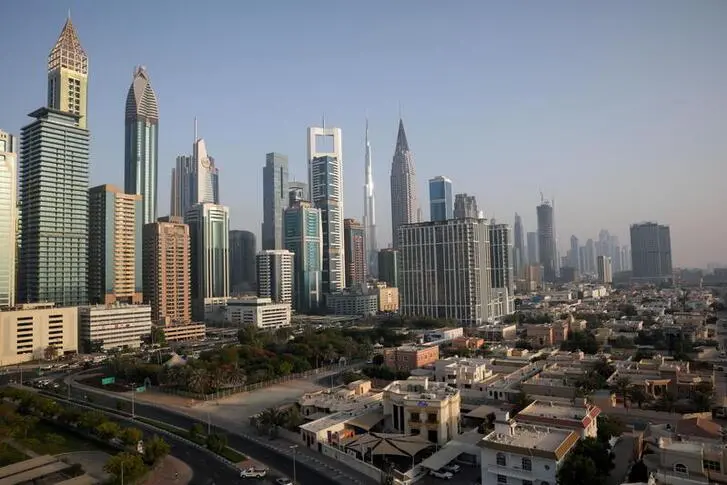PHOTO
The demand for purpose-built, professionally managed residential space is expected to increase further as cities worldwide begin to recover from lockdowns and global net migration returns to pre-pandemic levels, according to Savills, the leading global real estate advisor.
Despite the disruption caused by Covid-19, the global population movement will reach pre-pandemic levels by 2024, propelling the operational real estate sector to new heights, stated Savills in its recently released 'Global Living 2021' report.
The study focuses on the impact of global migration, mobility trends in the context of the pandemic and ESG, with a spotlight on embodied carbon.
CEO Steven Morgan said: "The Middle Easts economy has recovered rapidly as a result of the accelerated vaccination drive, showcasing its resilience as a place of investment and residence. This has resulted in an increase in investments, thereby creating employment opportunities and stable incomes."
"Cities in the region such as Dubai, Abu Dhabi and Kuwait City have emerged as mobility leaders, each with net migration rates projected to exceed 8% over the next five years," he stated.
According to Savills, the continued economic growth in the Middle East has allowed key markets such as the UAE, Saudi Arabia, and Kuwait to focus their efforts on improving their residential and commercial infrastructure, which has been greatly aided by government initiatives such as Dubai's Vision 2040 and Abu Dhabi's Vision 2030. This has increased investor interest in the region.
Furthermore, as restrictions have been lifted and daily consumer activity has resumed, the increased availability of retail and leisure activities, combined with the revival of live events, has increased mobility within the region, accelerating the growth of the real estate sector, it added.
Swapnil Pillai, the Associate Director for Research (Middle East), said: "Whilst capital values increased in the Middle East in 2021, the rental market remained stable, owing primarily to travel restrictions between key source markets."
"However, as travel restrictions continue to ease and economic activity accelerates, creating new job opportunities, the real estate sector is likely to see an acceleration in growth," stated Pillai.
According to him, climate change is another contributing factor that will continue to shape the sector in the coming years.
As per a recent report, embodied carbon accounts for 11% of total global carbon emissions, rising to 40% when operational carbon is included.
This indicates that sustainable construction methods, building standards, and redevelopment opportunities will become critical as new, more sustainable products are required to meet rising tenant demand, he added.-TradeArabia News Service
Copyright 2021 Al Hilal Publishing and Marketing Group Provided by SyndiGate Media Inc. (Syndigate.info).
Disclaimer: The content of this article is syndicated or provided to this website from an external third party provider. We are not responsible for, and do not control, such external websites, entities, applications or media publishers. The body of the text is provided on an as is and as available basis and has not been edited in any way. Neither we nor our affiliates guarantee the accuracy of or endorse the views or opinions expressed in this article. Read our full disclaimer policy here.





















